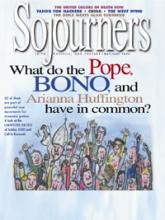In a country where Jesus’ words "the truth will set you free" are the mandate of a national commission, where forgiveness and reconciliation are not some vague religious ideals but national policy, it’s difficult to look into the lives of ordinary people and not find faith at work.
David Goodman, who traveled to South Africa in the dark days of apartheid in 1984 and then lived with his family for a year in the newly democratic republic in 1996-97, examines the dramatic changes in South Africa in Fault Lines: Journeys into the New South Africa. He doesn’t set out to write about religion, but the church has left such indelible marks upon the South African landscape that he can’t help but touch on deep questions of faith.
The church played a key role in both the construction and the dismantling of apartheid, with Christians on opposing sides during the struggle. Now, in the process of national healing, Christians stand on either side of forgiveness, as victims asked to forgive their oppressors and as oppressors asked to repent of the crimes.
While the emphasis on truth telling and repentance, and forgiveness and reconciliation, highlights the positive influence of the church in South Africa, the church’s role in perpetuating injustice is central to the story of Wilhelm Voerwoort III. The grandson of H.F. Voerwoort, the architect of apartheid, Wilhelm made headlines when he forsook his family’s legacy of white separatism and joined the African National Congress. This conversion came at the end of a long journey for Voerwoort, who at one time wanted to become a minister in the Dutch Reformed Church. He realized that apartheid was a brutal and unjust system while studying abroad in the 1980s. When he returned home, he realized his church had supported this injustice and kept silent about the atrocities committed by whites against blacks. He left the church and, consequently, alienated himself from his family.
Read the Full Article
